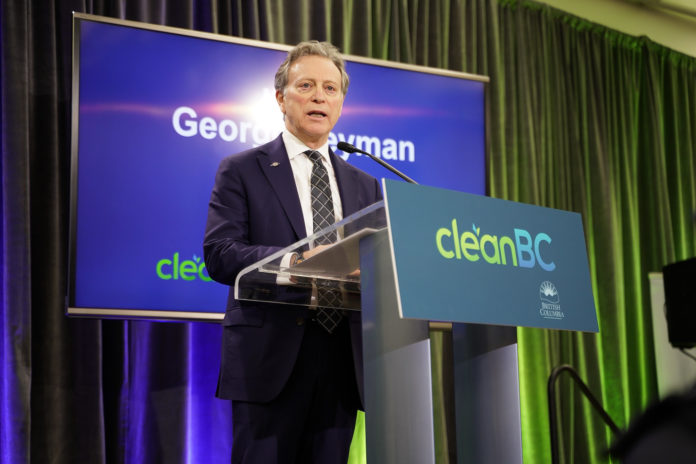The province is setting a new emissions target for 2025 following the release of the 2020 Climate Change Accountability Report from CleanBC.
The BC Government says that the new target requires greenhouse gas (GHG) emissions in B.C. to be 16 per cent below 2007’s levels by 2025.
2007 is the year that the province uses as a baseline for its targets. Revisions to the way the federal government calculates marine transportation emissions have lowered the baseline by 1.5 Mt CO2e.
Because goals are measured by going below the baseline, a lower 2007 emissions estimate means targets need to be increased.
In addition, new estimates for fuel use in several sectors revised gross emissions figures for 2017 by an increase of 1.3 Mt CO2e.
Even with emissions reductions from offset projects, the province says we have seen an increase of 3.5 Mt CO2e (6 per cent) from 2007.
“It’s clear we still have much more to do in order to meet our CleanBC targets,” said George Heyman, Minister of Environment and Climate Change Strategy.
“To make sure we stay on track to build a cleaner and stronger future, we’re putting in place a new near-term emission target that is both ambitious and achievable.”
While the government has touted its accomplishments on the climate change file, including a rapid increase in EV charging and boasting 9 per cent sales of zero-emission light-duty vehicles in 2019, not everyone is optimistic about CleanBC’s changes.
BC Green Party leader Sonia Furstenau criticized CleanBC as an “impartial road map,” saying it shows GHGs in communities going down while oil and gas emissions rise.
“It is unfair for government to expect individuals to continue making sacrifices and incur costs while they allow the #oilandgas sector to not just keep polluting – but actually helping them expand,” Furstenau wrote on Twitter.
It is unfair for government to expect individuals to continue making sacrifices and incur costs while they allow the #oilandgas sector to not just keep polluting – but actually helping them expand. 6/ #climate #climateaction #bcpoli
— Sonia Furstenau (@SoniaFurstenau) December 17, 2020
The Climate Change Accountability Report says that emissions from buildings and communities are down 8 per cent since 2007, while industrial emissions have risen 2 per cent.
It also says that an increase in emissions in 2018 was largely due to increased fuel consumption in heavy-duty diesel vehicles, oil and gas extraction, off-road industrial transport, and light-duty gasoline-powered trucks.
The Pembina Institute, a think-tank focussed on sustainable energy, called the report a “frank assessment” of the province’s rising emissions while also saying it leaves many details unclear.
“For a fulsome picture of climate progress, we expect future accountability reports to provide more clarity,” said Karen Tam Wu, B.C. director at the Pembina Institute.
“We need to see the emissions reductions achieved to date by specific programs…Once interim and sector-specific targets are established, the report should evaluate progress against these goals as well.”
The BC Government says they will be setting sectoral targets before March 31, 2021, with a long-term legislative goal of reaching net-zero emissions by 2050.



